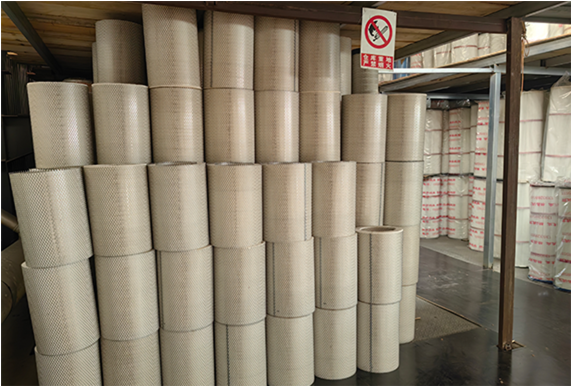 Tel:
+8618931101301
Tel:
+8618931101301
ธ.ค. . 25, 2024 15:01 Back to list
Optimizing Performance with Metal Filter Components for Industrial Applications
The Importance of Metal Filter Elements in Industrial Applications
In today’s fast-paced industrial environment, the need for efficient filtration systems has never been more critical. Among the various types of filtration methods available, metal filter elements have carved a niche for themselves owing to their durability, reliability, and efficiency. These specialized filters are crucial in various sectors, including food processing, pharmaceuticals, and chemical manufacturing. This article delves into the significance of metal filter elements, their construction, advantages, and applications.
Metal filter elements are typically made from stainless steel or other durable alloys, which makes them resistant to high temperatures and corrosive substances. This resilience allows them to perform optimally in extreme conditions where traditional filter materials—such as paper or cloth—would quickly degrade. The robust nature of metal filters not only extends their lifespan but also reduces the frequency of replacement, leading to decreased operational costs over time.
One of the most notable features of metal filter elements is their ability to be cleaned and reused, thus promoting sustainability in industrial processes. This cleaning capability can take form in numerous ways, such as backwashing, ultrasonic cleaning, or chemical cleaning, depending on the application and the nature of the contaminants being filtered. This reusability not only helps in minimizing waste but also in conserving resources—saving both money and energy.
Moreover, metal filters boast superior filtration performance due to their precise pore sizes and structural integrity. They can filter out smaller particles compared to conventional filters, offering higher quality outputs. This is particularly significant in industries where purity and cleanliness are paramount, such as pharmaceuticals and food production. The ability to achieve high levels of filtration ensures that products meet regulatory requirements, thereby enhancing consumer trust and satisfaction.
metal filter element

Additionally, metal filter elements are often designed to withstand high flow rates, which is essential for industries that require continuous operations. This characteristic ensures minimal pressure drop, allowing for an uninterrupted workflow while maintaining the desired filtration efficiency. In sectors such as oil and gas, where large volumes of fluids need to be processed, this capability translates to significant time and cost savings.
The versatility of metal filter elements also allows them to be customized to suit specific applications. They can be designed in various shapes, sizes, and pore configurations to meet the unique demands of a facility. This adaptability extends to their integration into various systems, whether as standalone devices or as part of a larger filtration setup.
Another critical aspect to consider is the environment in which metal filter elements operate. With increasing awareness of environmental issues and regulatory standards, industries are adopting more eco-friendly practices. Metal filters align with these initiatives as they minimize waste production and often have a longer lifecycle compared to traditional filtration methods. Their resilience to various cleaning methods reduces the environmental impact associated with filter disposal.
In conclusion, metal filter elements are indispensable components in modern filtration systems across various industries. Their durability, reusability, and high filtration efficiency make them preferable in environments demanding stringent quality control. As companies continue to focus on sustainability and operational efficiency, the role of metal filters will likely expand, further solidifying their importance in industrial applications. Through continuous innovation and advancements in filter technology, we can expect these elements to evolve, meeting the demands of an ever-changing industrial landscape while supporting broader environmental goals. Businesses investing in metal filter elements will not only benefit from improved filtration performance but will also contribute to a more sustainable future in manufacturing and processing.
-
Material selection considerations for dust removal filter elements under high temperature conditionsNewsJun.23,2025
-
Cold knowledge of air filters: Why are some designed to be pleated?NewsJun.16,2025
-
Factory direct supply! High-precision air filter element wholesale and customizationNewsJun.12,2025
-
A complete analysis of the practical value of activated carbon filtersNewsJun.10,2025
-
Why are high iodine coconut shell activated carbon filters more durable?NewsJun.06,2025
-
Gas Turbine FilterNewsJun.06,2025

 Email:
Email:





